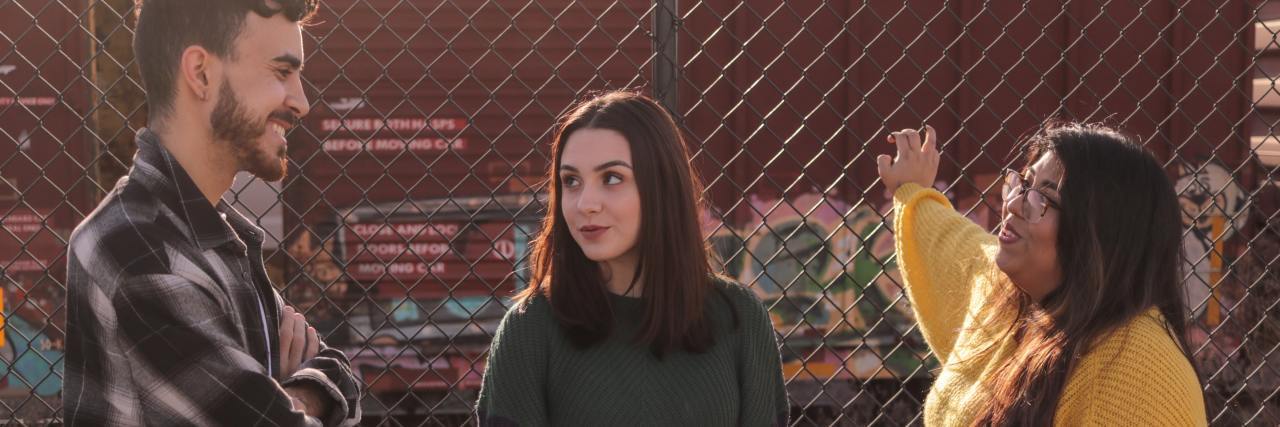This 2020 Mental Health Survey Shows Why We Need to Listen to Young People
Editor's Note
Editor’s note: this article was submitted by Mental Health America.
If you experience suicidal thoughts, the following post could be potentially triggering. You can contact the Crisis Text Line by texting “START” to 741741.
When I was 16, I tried to kill myself. Two weeks later, I was back in school. I was afraid of people finding out I was in a psychiatric unit. I was overwhelmed about catching up and keeping up with school. My mental health challenges and behaviors forced me to disconnect from the people around me and excluded me from activities that were important to me, like sports. I felt isolated, distressed and ashamed.
With rising rates of mental health conditions, including suicidal ideation, my experience is the story of countless young people. Unlike many young people, I was fortunate enough to have access to mental health services. These services, however, did not fully support my well-being.
I did not have mental health resources at school. I did not have a place of belonging to connect with people with shared experiences, and my peers did not seem to understand me. I had to hide my challenges in the “real world” and try to save them as much as possible for the mental health world where I spent so much of my time. In this world, mental health services were not in partnership with me or to empower me. From high school and throughout college, my thoughts about improving services and the way help was offered were overridden and dismissed by people who knew better.
As I started speaking out about my experiences with mental health resources, I discovered many other young people felt the same. They felt unheard and failed by those around them. People told them to ask for help, but many times, support was not there. Often, the support they received did not fully meet their needs and left them feeling disempowered, broken, or even more alone. They all believed that there had to be another better way. We could create a world where everyone has access to mental health resources but one that does not require them to build their lives around mental health services.
Mental Health America’s new report, “Young People’s Mental Health in 2020: Hope, Advocacy, and Action for the Future,” shows that many more young people feel the same way. This survey of more than 1,900 14 to 24-year-olds aimed to discover what was supporting young people during the pandemic and what they think would help them in the present and future.
Overwhelmingly, young people have relied on their hobbies to improve their mental health, followed by their friends. In terms of what they want, access to mental health professionals was important, but mental health breaks and absences at school and work were also necessary. Teens ranked access to professionals and breaks at school as equally important. Survey respondents also said they wanted to learn skills to support their mental health during their daily lives and to receive support from other young people.
The report notes examples of initiatives or programs led by young people that fill these gaps. Mental Health Kingdom offers peer support through gaming and art. Mindful Minute by Mind Body Ambassadors trains young people in mind-body practices and has young people lead their schools through daily mindfulness activities. UpLift by Youth Era empowers young people with tools to support themselves and their peers. In policy change, DMV Students are Mental Health Reform is organizing high school students to advocate for change in their schools, including excluded mental health days. More broadly, Young Invincibles Rocky Mountain brings together young leaders from across Colorado to demand lawmakers do better for young people’s well-being.
Around the country, many young people are stepping up to create what they need. Still, the survey showed that only one in four young people feel empowered to make a change in their communities. With the growing need and potential future mental health impact of the COVID-19 pandemic, leaders must listen to young people’s ideas and perspectives and provide opportunities and resources for leadership.
Leaders at all levels, whether at school, government, mental health services or other young people-serving environments, should include young people as equal partners in the design, implementation and measurement of their mental health initiatives. Policymakers and funders should require that programs that affect young people have methods that include young people at each of these steps as more than just tokens but with real influence. Funding should also be set aside for programs that are entirely run by young people who should be reimbursed for their time and expenses associated with participation in mental health initiatives.
With so many mental health advocacy groups and youth advocacy groups emerging across this country, it is past time to take young people seriously. Young people are leading the way on many issues, but they should not have to do it alone — or be considered adversaries. If leaders are genuinely committed to improving young people’s well-being, they must listen and take action on what young people want. There is no more time to wait.
Photo by Eliott Reyna on Unsplash

